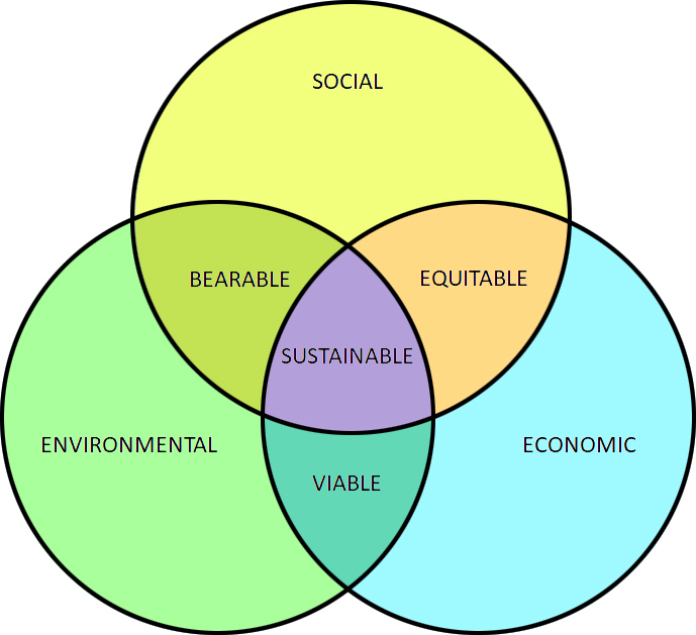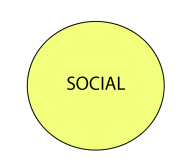
'Recognizing the need is the primary condition for design.'
Milton Glaser
Internal and external factors in engineering business
There are many factors (a circumstance, fact, or influence that contributes to a result) that can effect an engineering company or business.
This area of the website aims to describe some of the most relevent / impactful of those factors and should help you when considering a wide range of factors effecting the engineering sector.
Review the video below to find out more about the different ways of analysing the external factors effecting a business.
The main factors that effect engineering firms (internal and external) can be described in the categories that appear in the Venn diagram below.
Through examining the Venn diagram below we can see clearly how these main areas impact and interelate to eachother.
In order to explore this topic further it is necessary to understand which areas are classed as internal or external, which are a combination of both and the reasons for these differences.
We'll start by looking at the three main headings; Social, Economic and Environmental.
Social factors:
Social factors that may influence engineering operations in a company:
- Lifestyles - of staff and cultural habbits
- Buying habits - of customers and clients
- Education level - of staff / skill base - training needs of workforce
- Emphasis on safety - countries regulations and legislations
- Religion and beliefs - of staff and customers
- Health consciousness - Work life ballence, time off sick
- Sex distribution - Gender equality or lack of it in workforce
- Average disposable income level - of staff and customers
- Social classes - of country or business setting
- Family size and structure - effects workforce, health and wellbeing
- Minorities - social make-up of society / workforce
- Attitudes toward saving and investing - cultural / effects sence of security
- Attitudes toward green or ecological products - of staff and clients
- Attitudes toward for renewable energy - of staff and clients
- Population growth rate - turnover of staff, time off for paternity / maternity
- Immigration and emigration rates - staff retention and recruitment
- Age distribution and life expectancy rates - staff retention and health
- Attitudes toward imported products and services - effects productivity, and oppertunity for growth
- Attitudes toward work, career, leisure and retirement - effects productivity, staff retention and recruitment, public perception.
- Attitudes toward customer service and product quality - staff retention and recruitment, public perception and chances of picking up new business
Review this short video that explores some social / cultural factors.
Economic factors:
Economic factors that may influence engineering operations in a company:
- Interest rates - How much loans etc cost to repay
- Exchange rates - How much our currency is worth
- Recession - How stable our economy appears
- Inflation - How much the cost of living increses
- Taxes - How much we have to pay in tax and for what
- Demand / Supply - How much demand is there for a product or service and are we able to meet the demand in our supply chain.
External: The Economy
In a bad economy, even a well-run business may not be able to survive. If customers lose their jobs or take jobs that can barely support them.
Spending less on sports, gifts, luxury goods and new cars
You can't control the economy, but understanding it can help you spot threats and opportunities.
External: Competition from other Businesses
Unless your company is unique, you'll have to deal with competition. When you start your company, you fight against established, more experienced businesses in the same industry. After you establish yourself, you'll eventually have to face newer firms that try to slice away your customers.
Internal: Money and Resources
Lack of money can determine whether your company survives or dies. When cash resources are limited it affects; the number of people you can hire; the quality of your equipment; and the amount of advertising you can do.
A more cash rich business has a lot more flexibility to grow and expand or endure an economic downturn.
External: Politics and Government Policy
Changes in government policy can have a huge effect on your business. The tobacco industry is a classic example. Since the 1950s, cigarette companies have been required to place warning labels on their products, and they lost the right to advertise on television. Smokers have fewer and fewer places they can smoke legally.
The percentage of Americans who smoke has dropped by more than half, with a corresponding effect on industry revenues.
External: Customers and Suppliers
Next to your employees, your customers and suppliers may be the most important people you deal with. Suppliers have a huge impact on your costs. The ammount that can be charged for a material or service from any given supplier depends on availabiliity.
If you can't buy anywhere else, your negotiating power is limited.
The power of your customers depends on; how fierce the competition for their money is; how good your products are and whether your advertising makes customers want to buy from your business.





